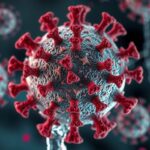Three-Year-Old Boy in Cambodia Diagnosed with H5N1 Avian Influenza
A three-year-old boy in Cambodia has been confirmed with H5N1 avian influenza, raising the total to three cases this year. The boy is in critical condition and receiving treatment. Health authorities are investigating the infection’s source and monitoring those in contact to prevent outbreaks. H5N1 primarily affects poultry but can be transmitted to humans, with historical cases leading to significant fatalities.
A three-year-and-six-month-old boy in Kratie province, Cambodia, has been diagnosed with H5N1 avian influenza, marking the third confirmed case in the country this year, as reported by the Ministry of Health. The young patient was admitted in critical condition, suffering from fever, cough, and difficulty breathing. He is currently receiving comprehensive medical treatment from a dedicated team of healthcare professionals.
The Ministry’s statement indicated that the child’s family raised chickens, with about five chickens having died recently, and some others exhibiting illness. The family reportedly cooked the deceased poultry for consumption. Health authorities are actively investigating the infection’s source and are monitoring individuals who have had contact with the patient to avert potential community transmission.
Among this year’s cases, two have resulted in fatalities, and all affected individuals had prior exposure to sick or deceased poultry. H5N1 is a variant of influenza that typically spreads among healthy birds but can transmit to humans, causing symptoms such as fever, cough, and severe respiratory difficulties. From 2003 to the present, Cambodia has recorded a total of 75 H5N1 infection cases, resulting in 45 deaths, according to the Health Ministry.
The health situation regarding H5N1 avian influenza in Cambodia remains critical, with three confirmed cases reported this year. The recent diagnosis of a young boy underlines the necessity for vigilance in monitoring and controlling the spread of this virus, especially given the historical fatality rate in human cases. Continued investigations by health authorities are essential to prevent future outbreaks and protect public health.
Original Source: www.thestar.com.my








Post Comment